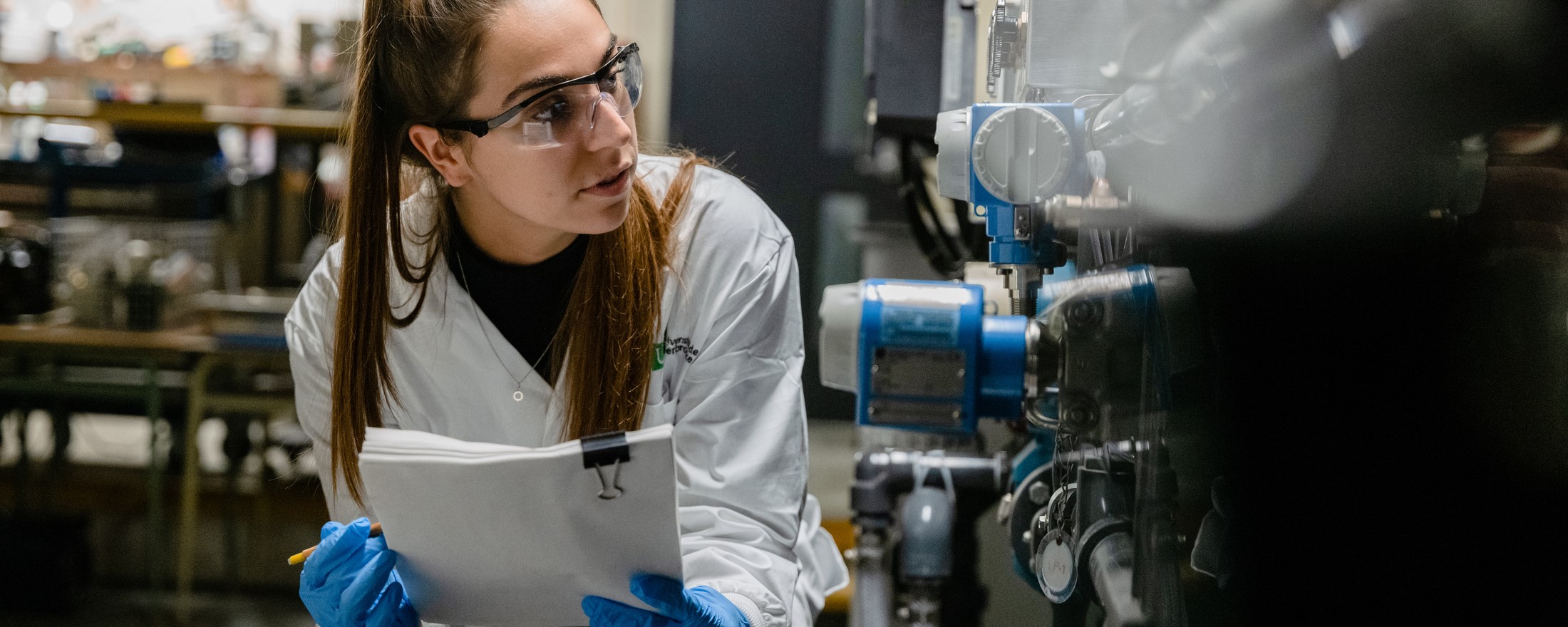Some UdeS Breakthroughs
A number of our professors have spearheaded remarkable developments. They participate in public debates, challenge conventional wisdom, and question practices. Their discoveries are at the core of numerous breakthroughs or technologies currently used throughout the world; they serve as a baseline for a whole scientific community.
Guidelines on the Clostridium Difficile Infection
In 2004, Dr. Jacques Pépin sounded the alarm after observing the death of a number of patients from the Clostridium difficile bacterium in the province’s hospitals. The professor’s intervention with the ministry led to an emergency meeting of specialists to fight the spread of the bacteria. His research would culminate in the publication of guidelines for healthcare institutions, to better equip them to prevent and control the infection.
Most cited publication
Clinical practice guidelines for Clostridium difficile infection in adults: 2010 update by the Society for Healthcare Epidemiology of America (SHEA) and the Infectious Diseases Society of America (IDSA), Infection Control and Hospital Epidemiology, volume 31, Issue 5, 1 May 2010, Pages 431-455.
Canada Excellence Research Chair in Quantum Signal Processing
Bertrand Reulet is recognized as a world leader in quantum research and non-Gaussian noise. He has participated in various projects, including a study on superconductivity in carbon nanotubes, and made a number of discoveries in experimental design.
Before being allocated a Canada Excellence Research Chair at the Université de Sherbrooke (2010-2017), Professor Reulet was Research Director in the Laboratoire de physique des solides at the Centre national de la recherche scientifique at the Université Paris-Sud XI, Professor at the École Polytechnique de France, and he worked for four years in the Department of Applied Physics at Yale University.
Bertrand Reulet was awarded the Anatole-et-Suzanne-Abragam award in 2008 from the French Academy of Sciences. This physics award was to highlight “the originality in design and elegance in application” of his innovative work on non-Gaussian noise, presented in his article “Environmental Effects in the Third Moment of Voltage Fluctuations in a Tunnel Junction,” published in the prestigious Physical Review Letters journal. Professor Reulet is a member of the Université de Sherbrooke’s Institut quantique (IQ).
Research on E-Commerce
John Ingham became a professor at the Université de Sherbrooke in 1979. He taught at the university before retiring in 2016.
During his tenure at the School of Management, he led the research group on online communities and instigated a number of projects to better understand the adoption of information technologies and e-commerce by individuals, the role of trust in e-business, and the impact of culture on implementing integrated information systems. He has published many research papers and doctoral theses in various fields of information system management and e-commerce.
Most cited publication
Why do people use information technology? A critical review of the technology acceptance model, Information and Management, volume 40, Issue 3, January 2003, Pages 191-204.
Prevention of Elder Abuse
Professor Marie Beaulieu is a world-renowned expert in research on the prevention of elder abuse. Her work has been the spearhead of numerous reference publications and practical guides for professionals in this field. She developed a validated decision-making framework laid out in the In Hand practical guide. Over 20 000 copies of this tool were distributed throughout Canada and eight partner countries in the network of the National Initiative for the Care of the Elderly. Since 2010, she has represented North America in the International Network for the Prevention of Elder Abuse and been the chairholder of the Research Chair on Mistreatment of Older Adults, financed by the Ministère de la Famille et des Aînés. Professor Beaulieu is a member of the Research Centre on Aging (CdRV).
Supraconductivity of Materials
Louis Taillefer is one of the world’s leading experts in terms of quantum and superconductive materials. He has made a number of high-profile discoveries, not to mention countless distinctions. In 2007, the professor initiated a technological revolution when his team succeeded in observing quantum oscillations in a copper-oxide ceramic. These signals, which are rarely and not easily observed, cleared the way for the tens of thousands of scientists interested in superconductive materials who were at a standstill for 20 years. Fascinated by superconductivity and more specifically cuprates, Professor Taillefer has been researching the topic for nearly 25 years. He is making an outstanding contribution to better understanding these materials which remain the best known superconductors to date. Louis Taillefer is a member of the Université de Sherbrooke’s Institut quantique (IQ).
Most cited publication
Quantum oscillations and the Fermi surface in an underdoped high-T c superconductor. Nature, volume 447, Issue 7144, 31 May 2007, Pages 565-568.
ACELP® Technology

ACELP generic technology was developed at the Université de Sherbrooke in 1988. This invention, almost as significant as the discovery of the transistor, influenced the development of cell phone technology around the world. This speech compression technology, which resulted from the work of a small research group in the Faculté de génie led by Professor Emeritus Jean-Pierre Adoul, is now used every day in more than 95% of the world’s cell phones, representing six billion users currently using this UdeS scientific breakthrough. ACELP technology stands as Canada’s most significant success in terms of translating academic research into commercial added value.





